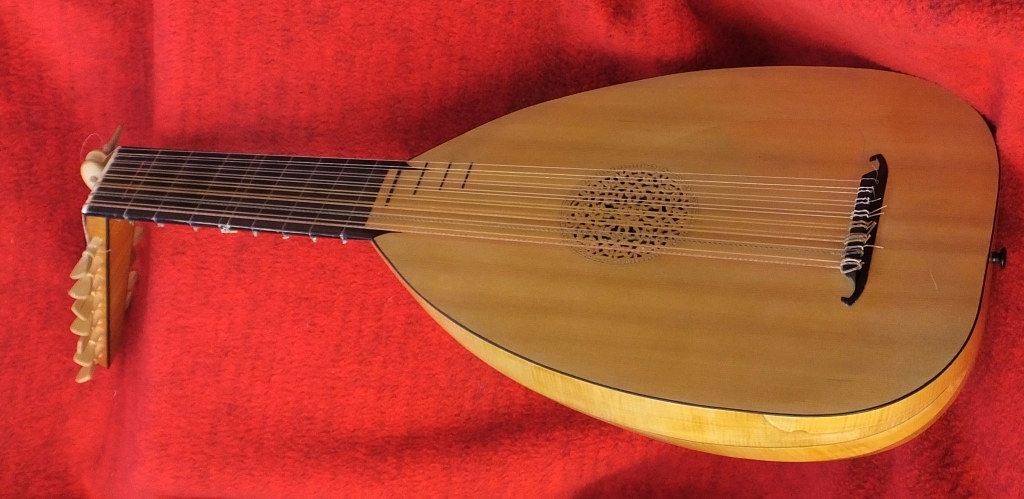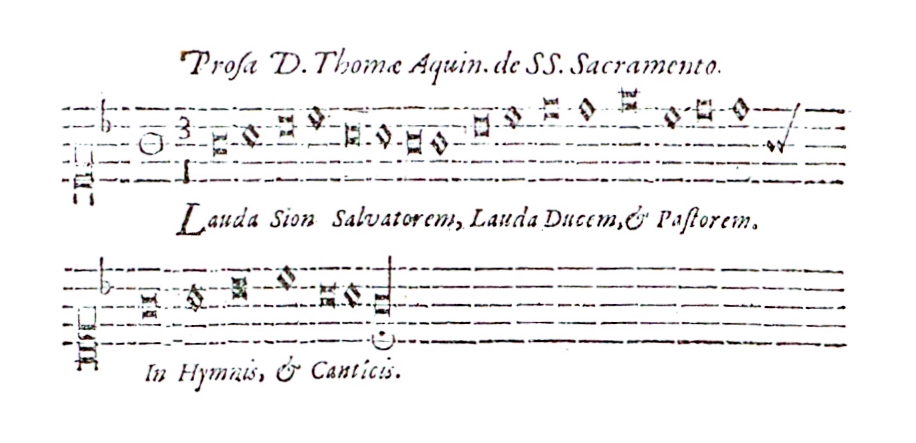Lauda Sion
Saint Thomas Aquinas: Lauda Sion
Lauda Sion Salvatorem
Lauda ducem et pastorem
In hymnis et canticis.
Quantum potes, tantum aude:
Quia major omni laude,
Nec laudare sufficis.
…
Quod in cœna Christus gessit,
Faciendum hoc expressit
In sui memoriam.
…
Dogma datur Christianis,
Quod in carnem transit panis,
Et vinum in sanguinem.
…
Bone pastor, panis vere,
Jesu, nostri miserere:
…
In terra viventium.
Dicsérd Sion megváltódat,
Vezéredet, pásztorodat,
Víg szívvel és énekkel!
Amint lehet, úgy tiszteljed,
Mert alacsonyb minden ügyed,
Nem érsz tiszteletivel.
…
Amit Urunk cselekedett,
Mi is cselekedjünk – intett -,
Szent emlékezetire.
…
Az híveknek hit adatik,
Hogy a kenyér testté válik
S a bor Krisztus vérévé.
…
Te jó pásztor, bizony étkünk,
Jézus, légy kegyelmességünk
…
Az élőknek földében!
Sion, lift up thy voice and sing:
Praise thy Savior and thy King,
Praise with hymns thy shepherd true.
All thou canst, do thou endeavour:
Yet thy praise can equal never
Such as merits thy great King.
…
His own act, at supper seated
Christ ordain’d to be repeated
In His memory divine;
…
Hear, what holy Church maintaineth,
That the bread its substance changeth
Into Flesh, the wine to Blood.
…
Jesu, shepherd of the sheep:
Thou thy flock in safety keep,
…
Fill us with celestial grace.
Hungarian text: János Kájoni (1719),
antecedents: Benedek Kisdi,
Cantus Catholici (1651) and/or
Mátyás Hajnal SJ (1578-1614)
.
English translation:
James Ambrose
Dominic Aylward OP (1813-1872)
8 chorus renaissance lute
copy built by Tihamer Romanek in 1998. The original instrument: Hans Frei, 1530 (Wien, KHM C34).

We heard this version of St. Thomas of Aquino’s Lauda Sion in a summer camp with the choir we were members of. It was reconstructed and recorded by memory around 1999. Participants: Ibolya Domján (14), Sebestyén or Attila Domján (both 9 – they don’t remeber either which one of them) and Dénes Domján (7).


